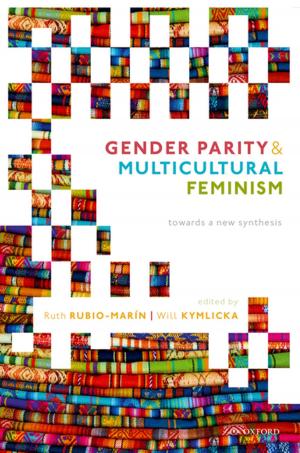Reconstructing Human Rights
A Pragmatist and Pluralist Inquiry into Global Ethics
Nonfiction, Social & Cultural Studies, Political Science, Politics, History & Theory, Religion & Spirituality, Philosophy| Author: | Joe Hoover | ISBN: | 9780191085567 |
| Publisher: | OUP Oxford | Publication: | June 2, 2016 |
| Imprint: | OUP Oxford | Language: | English |
| Author: | Joe Hoover |
| ISBN: | 9780191085567 |
| Publisher: | OUP Oxford |
| Publication: | June 2, 2016 |
| Imprint: | OUP Oxford |
| Language: | English |
We live in a human-rights world. The language of human-rights claims and numerous human-rights institutions shape almost all aspects of our political lives, yet we struggle to know how to judge this development. Scholars give us good reason to be both supportive and sceptical of the universal claims that human rights enable, alternatively suggesting that they are pillars of cross-cultural understanding of justice or the ideological justification of a violent and exclusionary global order. All too often, however, our evaluations of our human-rights world are not based on sustained consideration of their complex, ambiguous and often contradictory consequences. Reconstructing Human Rights argues that human rights are only as good as the ends they help us realise. We must attend to what ethical principles actually do in the world to know their value. So, for human rights we need to consider how the identity of humanity and the concept of rights shape our thinking, structure our political activity and contribute to social change. Reconstructing Human Rights defends human rights as a tool that should enable us to challenge political authority and established constellations of political membership by making new claims possible. Human rights mobilise the identity of humanity to make demands upon the terms of legitimate authority and challenges established political memberships. In this work, it is argued that this tool should be guided by a democratising ethos in pursuit of that enables claims for more democratic forms of politics and more inclusive political communities. While this work directly engages with debates about human rights in philosophy and political theory, in connecting our evaluations of the value of human rights to their worldly consequences, it will also be of interest to scholars considering human rights across disciplines, including Law, Sociology, and Anthropology.
We live in a human-rights world. The language of human-rights claims and numerous human-rights institutions shape almost all aspects of our political lives, yet we struggle to know how to judge this development. Scholars give us good reason to be both supportive and sceptical of the universal claims that human rights enable, alternatively suggesting that they are pillars of cross-cultural understanding of justice or the ideological justification of a violent and exclusionary global order. All too often, however, our evaluations of our human-rights world are not based on sustained consideration of their complex, ambiguous and often contradictory consequences. Reconstructing Human Rights argues that human rights are only as good as the ends they help us realise. We must attend to what ethical principles actually do in the world to know their value. So, for human rights we need to consider how the identity of humanity and the concept of rights shape our thinking, structure our political activity and contribute to social change. Reconstructing Human Rights defends human rights as a tool that should enable us to challenge political authority and established constellations of political membership by making new claims possible. Human rights mobilise the identity of humanity to make demands upon the terms of legitimate authority and challenges established political memberships. In this work, it is argued that this tool should be guided by a democratising ethos in pursuit of that enables claims for more democratic forms of politics and more inclusive political communities. While this work directly engages with debates about human rights in philosophy and political theory, in connecting our evaluations of the value of human rights to their worldly consequences, it will also be of interest to scholars considering human rights across disciplines, including Law, Sociology, and Anthropology.















